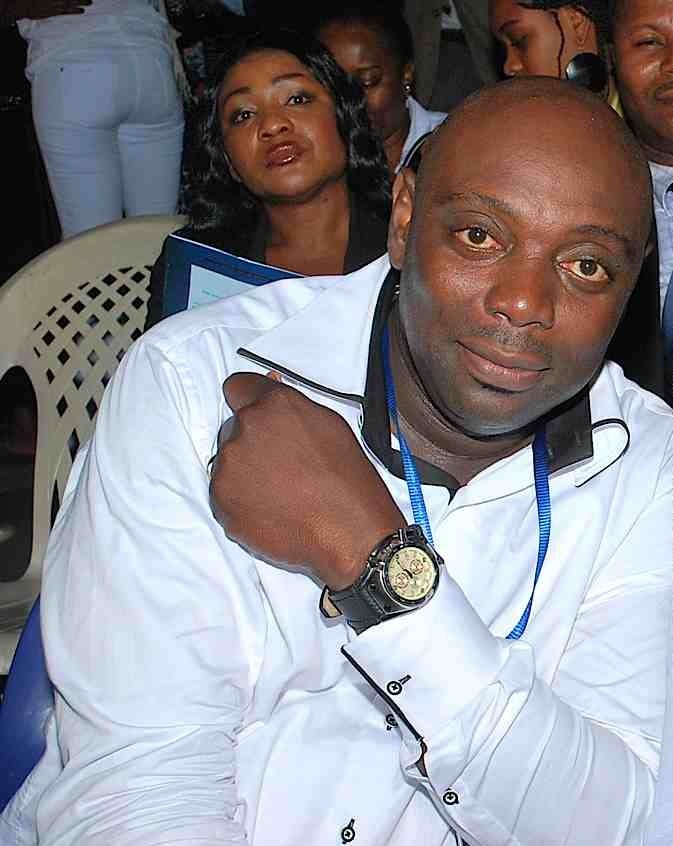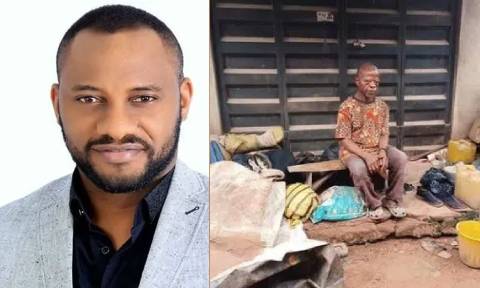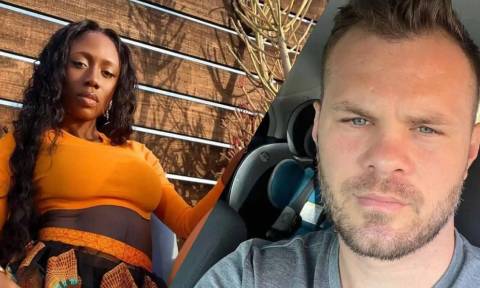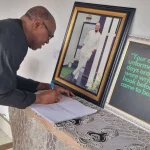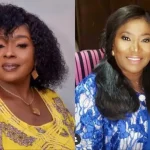1976, Wale Adenuga started Ikebe Super comic magazine, single-handedly drawing all the characters during the first four years. He later added Super Story and Binta magazines to his list of magazines, which gained wide acceptance.
Ten years after the birth of Ikebe Super, Adenuga decided to air Ikebe Super on TV under the title Papa Ajasco and Company, a move informed by the prevailing economic condition in the country at that time, which saw an increase in the cost of printing materials. In 2000, Super Story debuted on TV, and This Life followed suit.
Embracing TV as a medium has not changed anything for him, because, as far as he is concerned, he is still doing basically the same thing – entertaining through stories and his readers transited to his viewers. Since then, Adenuga has found fulfillment in his creations, which have been very interesting for him, and hopes his viewing public feels the same about how creativity has been very interesting for him.
Adenuga is one of those individuals who have made immense contribution to development of TV drama in Nigeria. Like many true artists, his creative spirit came to the fore at a tender age – he could draw almost anything when he was only seven. Although he was a student of business administration in the University of Lagos, his creativity led him to the position of a cartoonist in the campus paper.
Adenuga has been in the creative business long enough to know where the shoe pinches most and how lucrative the business could be. For him, profitability is largely based on the reception and satisfaction on the faces of his viewers. “True artists should not do things based on money. Seek first the kingdom of good business and money will follow. Artists should ensure they make profits, or break even. They don’t want to turn themselves into a candle that kills itself while giving light to people,” he states.
On how much it costs to shoot an episode or film, Adenuga says factors like the calibre of actors and logistics must be considered before costing can be done. For instance, an actor can be paid N1 million or more while another actor will receive N50, 000 for a role in a movie. In terms of logistics, he shares that some movies require travelling to other states, or even countries, which adds to the cost of production.
Shooting TV dramas is a lot more expensive than home videos, because, as Adenuga puts it, “The average home video in Nigeria has duration of one hour 45 minutes, while a drama like Super Story runs for an hour. That means that the costs of producing two episodes of Super Story is equal to the cost of producing one home video, and remember that there are 13 episodes in one quarter.” Although TV drama production is very expensive, Adenuga advises that if producers come up with quality programmes, they will easily attract sponsors.
TV requires different areas of specialisation, but he wonders why almost every actor wants to be a producer nowadays, saying it is probably because the word “producer” sounds prestigious. As far as he is concerned, “a producer is more or less a businessman; it goes beyond acting. If someone cannot manage the business effectively, the person should not think of being a producer. A producer doesn’t need to know how to act, but he must have good managerial skills. A producer must be able to manage men, machines, materials and money.”
Funding TV programmes is very expensive, but, for Adenuga who has been in business for 35 years, his products have been very successful. He has been prudent enough to have enough working capital. His reputation and goodwill enable him get support from banks, some of which he has been doing business with, from the very beginning. The banks see his inflow and outflow of funds and they can see what he does with the money.
On how conducive the Nigerian business environment is for film producers, he feels no sector should be ruled out when discussing the Nigerian business environment. As he says, “the universality of management cuts across different sectors: the same problems a doctor encounters in setting up a hospital, are the same problems an industrialist will encounter in setting up an industry; it is also the same set of problems that TV and film makers encounter.”
The Super Story producer stresses that irregular power supply is a serious issue that needs to be addressed, as it cripples the economy and puts Nigeria in a bad light among other developing nations. In his opinion “Nigerians have been trained to fend for themselves. Every Nigerian is crying for electricity, which is fundamental to every human activity. If we have had constant electricity supply, some of us would not have known the name of our president; people will be too busy doing small scale manufacturing to provide for themselves and their families; they will also be so gainfully employed that they won’t even know when there is an election.”
Adenuga also shares that faulty distribution network also contributes to why producers would want to cut costs in designing their films, as Nigerian lacks good distribution networks. He feels that fighting piracy is very challenging in Nigeria because of the corruption level, as well as the strong footing pirates have in the country. “At the beginning when piracy started as a child’s play, the government did nothing about it. How many pirates have been arrested? People caught should be sent to jail; this will discourage others from pirating other people’s works.”
As far as Adenuga is concerned, piracy will continue to thrive in Nigeria except the government implements the laws on piracy. He also feels that poverty and poor remuneration are compounding the already bad situation, as the policemen who are supposed to arrest pirates are busy collecting bribes from them.
“The film industry is the most dis-organised industry in Nigeria because it is the only industry without a national umbrella – a national association of filmmakers,” notes Adenuga. He shares that what obtains here are” tribalised pockets of guilds: a guild of movie producers made up of few friends; a guild of actors made up of few friends; a guild of movie producers made up of six friends; guilds which are not even national.”
For him, this absence of unity is a serious problem as no industry can move on without unity. “There should be a national guild for each skill, like directors, make-up artists, cameramen, continuity, lighting, and all various aspects of filmmaking. These guilds will then appoint officers. The officers of the different guilds will then appoint a national president of filmmakers, so that, when you say you are the national president of filmmakers, you have all the various professionals under you. This will go a long way in sanitising every aspect of filmmaking,” Adenuga proffers.
As far as he is concerned, TV drama should teach morals and add value to the society, as stories should change lives for the better. He feels that parents want to see good TV dramas that their children can learn from. “Storytelling is very vital in African culture, and the stories always have morals embedded in them. When a child hears a story, the parent must ask the child what he or she has learnt from it,” he states, advising that TV production should have contents that promote African values.
